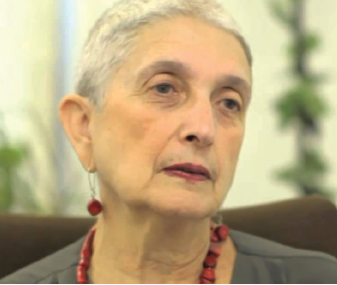Ronit Lentin examines the reality of the ‘migrant crisis’ which has seen thousands dying in pursuit of the hope of a new life free from war and misery.
The images keep coming: desperate refugees drowning in the Mediterranean, suffocating to death in container lorries, or crawling under barbed wire fences on the eastern edges of Europe, while armed Europeans chase them away, policing the fortress. The images whirl repeatedly in my mind’s eye: bloated bodies washed onto the shore, eyes wide open and mouths crying out in what French holocaust survivor Charlotte Delbo called ‘a howl, unheard’.
I make no apology for comparing the human detritus of what is dubbed Europe’s worst refugee crisis since the Balkan wars with the post WWII discovery of piles of emaciated Jewish corpses in the liberated Nazi camps.
Then, as now, the crisis has been defined both as European and as an aberration of European modernity, although in both cases it is actually the consequence of modernity’s racialised nation-state regimes, intent on keeping out threatening others and preserving Europe’s racial purity. Depicting the refugee crisis as European occludes not only post-colonial genocides, civil wars, economic, political and climate disasters in Africa and Asia, or the rejection of refugees by Australia, the US, Malaysia and Indonesia, but also the west’s key role in generating wars in Iraq, Somalia, Afghanistan and Syria – the latter two producing the largest numbers of refugees – 2.5 and 2.4 million respectively in 2013 (according to World Bank data).
What we are witnessing is the crumbling of the fortress
There have been some displays of solidarity and empathy by some Italians and Greek islanders, or by Ada Colau, the mayor of Barcelona, who wrote on her Facebook page: “What Europe needs urgently is a ‘Call to affection’, a call to empathy. They could be our children, sisters or mothers. We could be us, as many of our grandparents were also exiled. Although this is an issue of national and European competition, in Barcelona we will do everything we can to participate in a network of cities of refuge. We want cities committed to human rights and life, cities to be proud of.”
But the refugees keep coming and I make no distinction between the very few ‘genuine’ refugees deemed deserving of Europe’s protection, and migrants, who, unless imported to fill labour vacancies so as to maintain ‘our way of life’, are deemed ‘economic’ and thus undeserving and deportable.
The racialised dehumanisation of people without names or individual identities aims to enable the European ‘we’ to go on deluding ourselves that Europe remains white, monocultural (a myth long past its sale-by date) and Christian – another fabrication in the current age of secularisation. The white supremacy absurdity is perfectly illustrated by the Czech parliamentarian Tomio Okamura (himself of Moravian, Japanese and Korean descent, hence of migrant origins) who writes that ‘Muslims, uninvited intruders from an enemy culture, will destroy our democracy and our freedoms’.
Meanwhile, as Hungarian, Czech and Bulgarian armed guards try – in vain as it turns out – to repel endless waves of desperados climbing over Ghetto Europe’s walls and crawling under its barbed wire fences, EU States fingerprint, photograph, sort and categorise as many refugees as they can, sifting deserving from undeserving, policing the fortress. At the same time, settler-colonial states such as Australia and Israel – the archetypal refugee state – intern refugees, the former offshore in Nauru and Manus Island, the latter in the southern Naqab desert, intent on maintaining their colonial supremacy, all the while oppressing indigenous Aboriginal and Palestinian people, ethnically cleansed and occupied by the white supremacist colonisation project.
Despite being an eternal ‘passionate pessimist’, the haunting images of the desperados who keep coming gives me some hope too. From prisons and refugee camps, from detention camps and direct provision centres, by rickety boats, trains, buses and vans, they swim and they walk, carrying their babies and meagre possessions, and mourning their dead. Unstoppable and resilient, they have nothing to lose, and the policed walls of the fortress can no longer withstand the life force of their autonomous march to freedom.
As the poet Yeats said, “things fall apart, the centre cannot hold”, and I keep thinking that what we are witnessing is a historical moment, the beginning of the end, the crumbling of the fortress.
Ronit Lentin is an emeritus professor of sociology in Trinity College Dublin.





